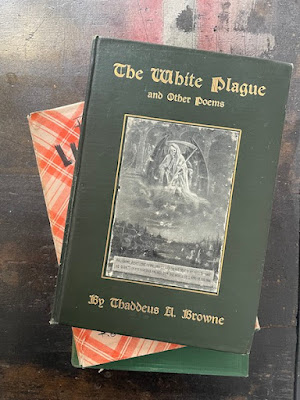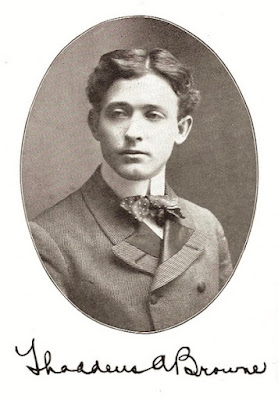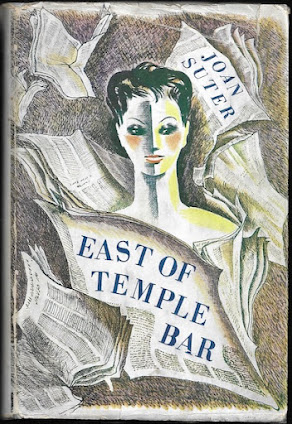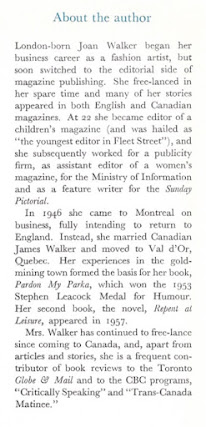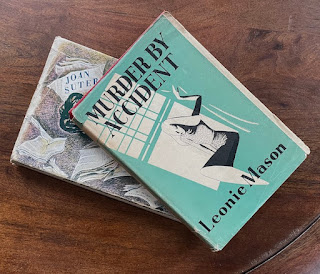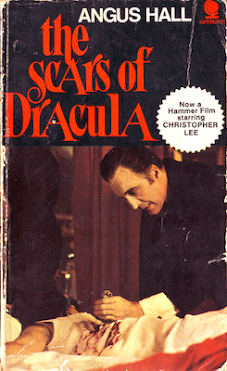The second of my two conversations with Leacock Medal scholar Dick Bourgeois-Doyle is now available here on Soundcloud.
The topic is Ted Allan's Love is a Long Shot – in its 1949 and 1984 incarnations – and why I believe the latter was ineligible for the award.
I first wrote about Love is a Long Shot in the 2011 Fall/Winter issue of Canadian Notes & Queries; then reworked the piece for The Dusty Bookcase book. I'm sharing it here for the first time:
Can a writer, even a deceased writer, be stripped of the Leacock Medal? It’s a fair question, particularly when one considers the late Ted Allan, who received the honour in 1984 for Love is a Long Shot. This slight, uninspired novel tells the story of seventeen-year-old David Webber and his sometimes ribald adventures tending the till in a thirties-era Montreal cigar store-cum-bookie joint. It features a cast of characters that are characters; each ultimately and invariably proving themselves loveable types despite earlier indiscretions. Readers familiar with Lies My Father Told Me, the 1975 film that earned Allan an Academy Award nomination, will recognize some of these folks, including David’s frustrated inventor-father and his ideas for moveable cufflinks and permanently creased trousers.
This is not to suggest that there’s anything deceitful here; not with the film, at least. The overlap between Lies My Father Told Me and Love is a Long Shot is trifling, and in no way makes the latter ineligible for the Leacock. The medal’s rules inform: adaptations are fair game, we need only discount works of which “significant or substantial parts have been previously published in book form.”
Like so many tomes, the 1984 Love is a Long Shot includes a list of the author’s previous works. Allan’s first novel, This Time a Better Earth (1939), is followed by The Scalpel, The Sword (1952), the commercially successful biography of Norman Bethune that he wrote with Sydney Gordon. There’s Quest for Pajaro (1957), the science-fiction novel Allan published under nom de plume “Edward Maxwell,” and his children’s book Willie, the Squowse (1973). Also included is a comprehensive list of Allan’s plays and screenplays. What’s missing is telling: an earlier Love is a Long Shot.
“Never wore a corset in my life. Never had to.” She swaggered out from behind the counter. “If you don’t believe me, feel,” she said, offering me her hip.“I believe you,” I said.“Feel. Feel. Don’t be shy.”I touched her quickly with the tips of my fingers.She started to laugh again, a loud, hearty laugh. “How old are you?”I dug the broom into the floor, pushed hard and told her my age.“I bet you never had a man.”
“Never wore a corset in my life. Never had to.” Weaving from behind the counter, she offered me her backside. “If you don’t believe me, feel.”Any further frivolity in the original Love is a Long Shot is soon overwhelmed by the noir. The greatest difference between the two novels lies in their depictions of organized crime. While the Leacock-winning Love is a Long Shot has the “syndicate” as a group of misbehaving boys, the 1949 original comes uncomfortably close to ugly reality.
“I believe you.”
“Feel, feel, don’t be shy.” She wiggled her behind. I touched her hip quickly with the tips of my fingers. This made her cackle. You have to hear a woman with a bass voice cackle before you can believe the sound.
“So help me, he’s blushing. How old are you?”
“I’m twenty-one,” I lied.
“I bet you’re still a cherry.”
Young Katie falls for “tall, rugged-looking, tanned” mob boss Hazen Black, a relatively young man rendered impotent by a life of debauchery. In what is surely one of the darkest scenes in Canadian literature, the appropriately-named Black masturbates while instructing his henchman Herbert to rape Katie:
Herbert grabbed me and held his hand over my mouth. I tried to bite it. “Go ahead,” Black was shouting. “Go ahead, damn it, go ahead.” His eyes looked insane. His breath was coming in short gasps, as if he’d been running. He was close to me, but hadn’t touched me yet. “Go ahead. Pick up her dress… do it, do it, do it.”
The original Love is a Long Shot ain’t that pretty at all—nor is it funny. Printed only once, in a fragile, disposable edition that credits the author variously as “Alice K. Doherty,” “Alice H. Doherty,” and simply “Alice Doherty,” it slipped by the judges of the 1984 Stephen Leacock Memorial Medal for Humour. The most one can say about the award-winning Love is a Long Shot that is that is was far superior to the previous year’s winner, Gary Lauten’s No Sex Please… We’re Married. Allan didn’t deserve the honour; the $3,500 cheque should have rightfully gone to fellow nominee John Gray, whose debut novel, Dazzled, had been issued by the anaemic Irwin Publishing. It’s a sad fact that the best novel Ted Allan ever wrote was one that he chose not to recognize. A cheap mass-market paperback issued under a pseudonym that the publisher couldn’t get right, it has been out of print for over half a century.




